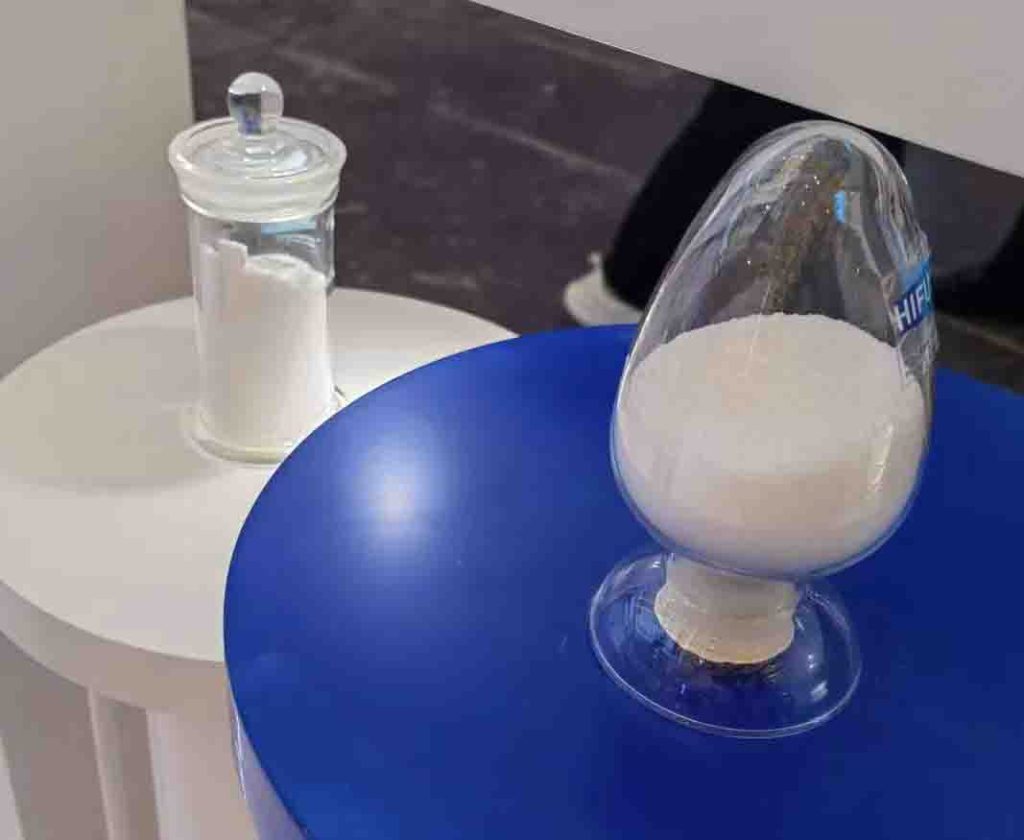Rheology Modifiers for Waterborne Paints
Waterborne Paints
Like solvent-based paints, water based paints require a thickener like organoclays. This is for better yielding capabilities of paint ingredients like pigments etc. The organoclay compound maintains these paint ingredients in homogenous state. It also helps to improve the paints’ rheological properties which is a thickening agent.
Formulating Waterborne Coatings | Rheology Modifiers for Waterborne Paints
In formulation of waterborne coatings, you achieve a stable emulsion, the binder, pigments, and additives are emulsified or dispersed within the water. This emulsification process ensures that the various components are evenly distributed throughout the coating.
Binders in waterborne coatings are typically copolymers derived from acrylic, vinyl, and styrene. These copolymers provide film-forming properties and act as the backbone of the coating system. Pigments are responsible for providing color, opacity, and other desired visual properties to the coating. They can be organic or inorganic compounds and are finely dispersed within the coating formulation. Rheological additives modifiers or thickeners, such as bentonite or organoclay, are commonly used additives. They help control the coating’s flow and viscosity, preventing sagging or dripping during application and ensuring a smooth and even film formation.
Rheology Modifiers for Waterborne Paints
Organoclay is one of the predominant compounds in waterborne paints that act as a rheology modifier. It is one of the essential additives and it provide thickening properties, additional functionalities, and performance enhancements. Organoclay has the following capabilities:
Associative Rheology Modifier
Organoclays are specifically designed to thicken aqueous liquids that contain dispersed hydrophobic substances. These modifiers work by forming associative networks within the liquid, enhancing viscosity and controlling flow behavior. They are particularly effective in improving the sag resistance and leveling properties of waterborne paints.
Synthetic Polymer Rheology Modifier
Organoclay also acts as a synthetic polymer rheology modifier. It offer not only thickening properties but also additional functionalities that enhance the performance of waterborne paints. These modifiers can provide wetting properties, improving substrate adhesion and facilitating the spreading of the paint. Synthetic polymer rheology modifiers like organoclay help paint manufacturers meet stringent regulatory requirement.
Water Retention Aid | Rheology Modifiers for Waterborne Paints
Organophilic clays are also designed to address issues related to the drying and application of waterborne paints. It prevents binder migration, which can cause coating unevenness and streaking during application. Organoclay as a rheological modifier inhibit blade wear and stabilize coating pressure and volume.Rheology Modifiers for Waterborne Paints creates a consistent and smooth application of the paint. Improving the water retention properties of the paint formulation aids and allow for extended open times. It reduces the risk of drying too quickly and resulting in defects such as brush marks or roller marks.
Influence and Applications of Organoclay Rheology Modifiers for Waterborne Paints
It is unquestionably that organoclay as a rheology modifier has been a great additive in achieving the best water-based paints and systems. We can almost see organoclay’s usage in this industry. It has a broad range of applications in water-based systems, and it can function as thickeners, provides better viscosity and amazing thixotropy characteristics.
Thickening Agent Water-borne Bentonite clay Emulsion Paint
Organoclay rheology modifiers are widely utilized as effective thickening agents in waterborne emulsion paints. These modifiers improve the viscosity of the paint so it can be controlled and adjusted to achieve the desired consistency and flow behavior. This makes the waterborne emulsion paint the characteristics of improved application properties, such as reduced sagging or dripping, and enhanced leveling characteristics. The organoclay forms a network structure within the paint, providing stability and preventing the settling of pigments and fillers.
High Viscosity Modified Bentonite for Emulsion Coating | Rheology Modifiers for Waterborne Paints
High viscosity modified bentonite allows for the formulation of emulsion coatings with increased viscosity, which is particularly advantageous in vertical or overhead application scenarios. The higher viscosity helps prevent sagging and ensures that the coating adheres well to the surface, resulting in improved film build and overall performance.
Water Borne Inks Thickener
If you incorporate organoclay in inks, the viscosity of the ink can be increased, ensuring better control over ink flow and preventing issues like feathering or bleeding. The organoclay provides excellent suspension stability for pigments and inks.
Water-Borne Modified Bentonite clay with Good Thixotropy
Organoclay also provides good thixotropy properties to waterborne paints. The paint will become less viscous under shear stress and returning to higher viscosity when the stress is removed. The thixotropic behavior that organoclay imparts is desirable as it allows for easy application and excellent sag resistance.
Water Borne Adhesives Rheology Modifier
Organoclay when used as a rheology modifier to adhesives improve the adhesive’s viscosity and tackiness, enabling better bonding performance and enhanced adhesion to various substrates. Additionally, they contribute to the stability and consistency of the adhesive formulation, preventing issues like phase separation or settling.
Water Based Thickening Agent for Wall Coating + Rheology Modifiers for Waterborne Paints
Organoclay rheology modifiers serve as effective thickening agents in water-based wall coatings as well. The viscosity of the coating can be increased using these modifiers. Rheology Modifiers for Waterborne Paints provides better control during application and allowing for uniform coverage and excellent hiding power. The thickening effect also helps prevent drips and splatters, ensuring a smooth and even finish on walls.
High Gelling, Transparent Color for Water-borne Sealant
And lastly, when incorporated into water-based sealant formulations, organoclay provides excellent thickening capabilities. This allows for precise control over viscosity and enhanced sag resistance. Organoclay’s high gelling capacity ensures that the sealant maintains its structural integrity, even under dynamic conditions. Organoclay imparts transparency to the sealant, preserving the natural appearance, especially if the sealants needs to be in a specific color, but still providing reliable protection.
Rheology Modifiers for Waterborne Paints
When you want to use organic bentonite as a thickener in water-based paint coatings, and even in some water-based lubricants or water based grease and inks, organic bentonite, there is no doubt that it is a product worth choosing. Its thickening, rheological properties, Thixotropy, suspension properties, anti settling properties, and so on displayed in water-based systems will make you feel particularly worthwhile.
We look forward to your inquiry regarding our Rheology Modifiers for Waterborne Paints.


